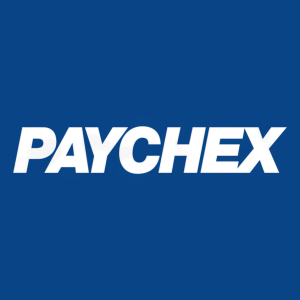Employees Are 63% More Likely to Stay with Employers Who Provide Better Learning Opportunities
Workers across multiple demographics state that a lack of hard and soft skills are holding them back from career advancement
ROCHESTER, N.Y., Oct. 19, 2022 /PRNewswire/ -- New research from Paychex, Inc., a leading provider of integrated human capital management software solutions for human resources, payroll, benefits, and insurance services, indicates that employers can build and retain top talent by offering educational and skill-building opportunities for employees.
The survey of over 600 employees nationwide, conducted in partnership with Future Workplace, an Executive Networks member company, highlights workers' desires to sharpen their skills and advance their careers with the support of their employers. In fact,
The report further revealed that employers are providing the right learning and development opportunities for full-time, in-office employees, but have gaps to fill when it comes to remote, hybrid, and part-time workers.
"The American work experience is more varied than ever before — even between workers in the same roles," said Alison Stevens, director of HR Services at Paychex. "We're seeing skill gaps grow as employees increasingly get to choose working arrangements that fit their lifestyles. With employees yearning for more educational and career-building experiences, employers will need to pay attention to the differences between these groups to curate programs that keep employees engaged and stimulated regardless of their time in an office."
Employees are more likely to stay with employers who offer robust educational and career-building opportunities
Most employees (
Still, most employees (
- Construction (
76% ) - Education and health services (
60% ) - Retail, trade, transportation, and utilities (
59% ) - Leisure and hospitality (
42% )
Note: For purposes of this study, Gen Z is defined as those born between 1997 and 2015, Millennials are defined as those born between 1981 and 1996, Gen X is defined as those born between 1965 and 1980, and Boomers are defined as those born between 1946 and 1964.
Employees report specific soft and hard skills are holding them back in their careers
The top soft skills (abilities focused on personal development or interpersonal relations) and hard skills (abilities directly related to one's role) employees believe are holding them back from career advancement are:
Soft Skills | Hard Skills |
Time management – | Data analytical skills – |
Digital literacy – | Computer skills – |
Leadership skills – | Software skills – |
Soft skill differences by generation and between on-site, hybrid, and remote employees
- Fully on-site, hybrid and remote employees: Those whose work environment is fully on-site (
46% ) are more likely to say that digital literacy (the ability to use and understand technology) is holding them back than those whose work environment is fully remote (34% ) or hybrid (26% ). For fully remote employees (34% ), communications skills were of bigger concern than for their on-site or hybrid counterparts (28% for both groups). - Generational differences: For Baby Boomers, digital literacy is the top soft skill of concern (
63% ) compared to Gen Z, whose main concern is decision-making (45% ).
Hard skill differences by generation and between on-site, hybrid, and remote employees
- Fully on-site, hybrid and remote employees: Fully on-site employees (
42% ) are more likely to say that data analytical skills are holding them back, than hybrid (38% ) and fully remote (35% ) workers. Fully remote employees (30% ) are more likely to say writing skills are holding them back than hybrid (25% ) and fully on-site employees (22% ). - Generational differences: Baby Boomers were
51% more likely to say that computer skills were holding them back, and software skills were of bigger concern for Baby Boomers (43% ) and Gen X (42% ) than the younger generations, with36% of Gen-Z and31% of Millennials. Additionally, the likelihood of marketing skills holding employees back increased as employees got younger:45% of Gen Z,39% of Millennials,31% of Gen X, and27% of Baby Boomers.
"Unemployment is at a 20-year low, and employees are begging for educational offerings that can help them learn and advance," said Jeanne Meister, founder of Future Workplace and executive vice president at Executive Networks. "Employers have taken note, but there is always more they can be doing to encourage retention. For those employers who are unsure what their employees want, the best place to start is to ask. In this competitive hiring market, if you don't offer employees the resources they need to grow, someone else will."
For more insights from this survey, please view the full research report.
These findings are based on a survey conducted across the USA from August 22 to 28, 2022. For this survey, 606 full and part-time employees at small to mid-size businesses (20-500 employees) were asked general questions to understand employees' thoughts around career advancement. The study targeted employees between the ages of 18 and 75 years. This is a survey in a series of research reports administered by Future Workplace that focus on the employee point of view and pinpoint top concerns, priorities, and trends facing the modern workforce.
Paychex, Inc. (Nasdaq:PAYX) is a leading provider of integrated human capital management solutions for human resources, payroll, benefits, and insurance services. By combining innovative software-as-a-service technology and mobility platform with dedicated, personal service, Paychex empowers business owners to focus on the growth and management of their business. Backed by 50 years of industry expertise, Paychex serves more than 730,000 payroll clients as of May 31, 2022 in the U.S. and Europe, and pays one out of every 12 American private sector employees. Learn more about Paychex by visiting www.paychex.com and stay connected on Twitter and LinkedIn.
Media Contact
Samantha Jean
Public Relations Program Manager II
Paychex, Inc.
(585) 218-6086
skjean@paychex.com
@Paychex
![]() View original content to download multimedia:https://www.prnewswire.com/news-releases/employees-are-63-more-likely-to-stay-with-employers-who-provide-better-learning-opportunities-301653935.html
View original content to download multimedia:https://www.prnewswire.com/news-releases/employees-are-63-more-likely-to-stay-with-employers-who-provide-better-learning-opportunities-301653935.html
SOURCE Paychex, Inc.








